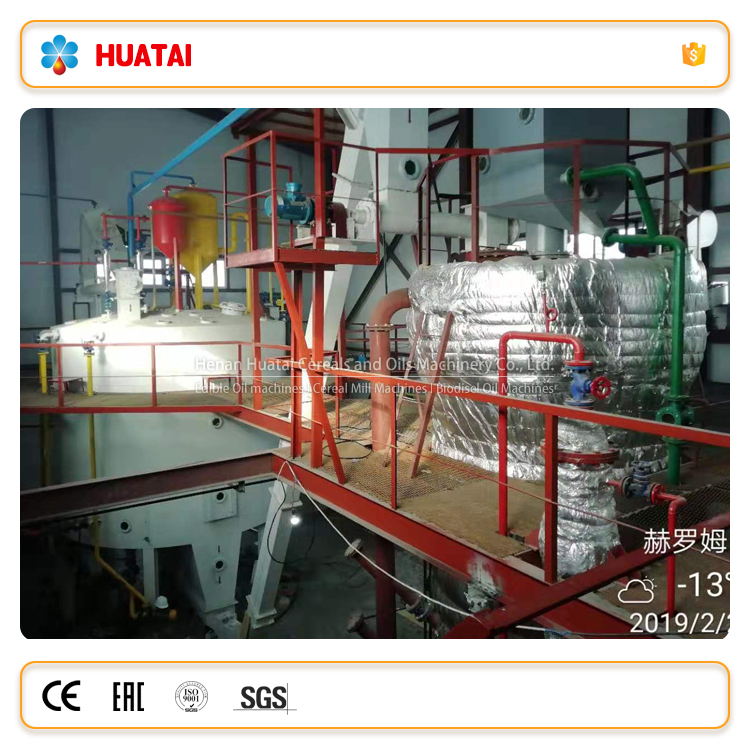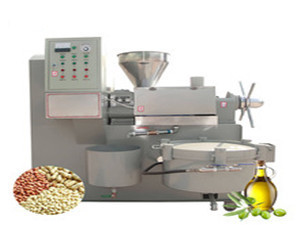
When it comes to the long - term stable operation of screw oil presses, the key performance indicators of wear - resistant materials play a crucial role. Hardness, toughness, and corrosion resistance are the three main factors that directly affect the equipment's performance. For instance, a high - hardness material can withstand the abrasion from oilseeds during the pressing process. However, if the material lacks sufficient toughness, it may crack under high - pressure conditions. Meanwhile, corrosion resistance is essential to prevent the material from being damaged by the chemical components in oilseeds and the high - humidity environment inside the press. You may be wondering how to balance these three indicators for the best results. Well, it's all about understanding the specific requirements of your oil - pressing process.

Different oilseeds have different physical and chemical properties, which means they require different wear - resistant materials. When pressing peanuts and rapeseeds, the press operates under high - temperature and high - pressure conditions. Some materials may perform well in the cold - pressing process but fail to adapt to the hot - pressing environment. For example, in the high - temperature hot - pressing of peanuts, a material with excellent heat - resistance and high - temperature strength is needed. On the other hand, for the cold - pressing of rapeseeds, a material with good toughness may be more suitable. By understanding these differences, you can choose the right wear - resistant material for your specific oil - pressing scenario, thus ensuring the long - term stable operation of your equipment.
Let's take a look at a real - world example. A well - known grain and oil processing enterprise was facing the problem of frequent equipment downtime and high maintenance costs. The old wear - resistant parts of their screw oil presses needed to be replaced frequently, and the annual downtime reached 48 hours. After they switched to our new - type wear - resistant components, the situation improved significantly. The annual downtime dropped from 48 hours to 12 hours, a reduction of 75%. The equipment's service life was extended by more than 30%, and the maintenance frequency decreased by 50%. As the enterprise's production manager said, These new wear - resistant parts have truly solved our long - standing problems. We can now focus more on production rather than worrying about equipment failures.

To ensure the long - term stable operation of your screw oil press, it's essential to have a proper maintenance plan. Here is a simple daily maintenance process: First, clean the equipment regularly to remove the residual oil and debris. Second, check the wear - resistant parts regularly for signs of wear and tear. You can also establish a fault - warning mechanism. For example, if the temperature or vibration of the equipment exceeds a certain threshold, it may indicate a potential problem. By having these maintenance and warning mechanisms in place, you can improve your ability to manage the equipment independently and reduce the risk of unexpected breakdowns.
We understand that you may have concerns about after - sales service. That's why we offer a global service system with a fast - response commitment. No matter where you are in the world, our professional engineers can provide you with timely support. Whether it's technical consultation or on - site maintenance, we've got you covered. With our service, you can have full confidence in the long - term operation of your equipment.
By now, you should have a better understanding of how wear - resistant materials can improve the performance of your screw oil press. Mastering this knowledge can significantly reduce your production losses. Are you facing the problem of frequent replacement of parts? Do you want to improve the efficiency of your oil - pressing equipment? If so, immediately consult our engineer team to get a customized equipment optimization plan. We've also prepared an information chart showing the wear comparison of different materials and the maintenance cycle table for your reference. Now, we'd like to start an interaction with you. Which type of vulnerable parts are you most concerned about? Leave your answer in the comments below. Let's discuss and find the best solution for your equipment together!

立即咨询我们的工程师团队,获取专属设备优化方案 Click here to consult now










